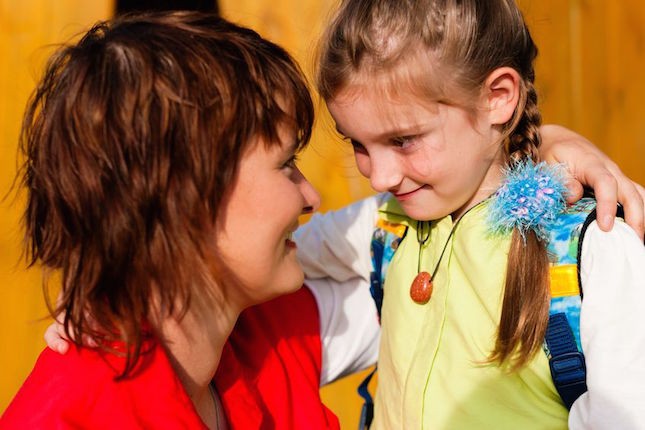A lot happens in our New Zealand Summer school holidays. We have the long summer holiday itself, Christmas, New Year and then the build up to going back to school which may involve a new teacher, a new classroom and sometimes a complete change of school.
The old saying goes ‘ a change is as good as a rest’ and although busy parents may not exactly agree with this quote at this time of year – it can be a good time to set up some intentions to make the new year as family-friendly, child friendly and learning friendly as possible. In other words it is a good time for parents to think and reflect on what works well already in the relationship between children, school, home-life and parents and what could be changed to make life run a little more smoothly for everyone. Here are some tips for getting ready for the next year of learning.
Getting ready for the next year of learning
Top of my list for families would be to reflect on the energy levels of the children. The reason for this is that statistics show us that children are getting stressed, depressed and exhausted at ever decreasing ages. (According to research at Canterbury University there was a 140% increase in anti-depressant prescriptions for young children from 2009-2010.) One perspective on the worrying increase in children’s mood disorders is that they are the consequence of living a high paced life in an anxiety driven world. Low energy levels in children can be an indicator that life is being lived too much in the fast lane – and the child needs some downtime.
From a learning perspective one of the key things a parent can take responsibility for is to support their child in turning up to school in the best frame of mind to learn. The components that enable this to happen will be different for each child but the general key areas would include:
- making sure your child regularly gets enough sleep
- making sure your child has time to play, relax and just ‘be’
- making sure your child has plenty of family time
- making sure your child has a healthy diet
The importance of getting enough sleep
Sleep in particular is a key brain food. Sleep enables the brain to file away new learning, filter out extraneous information and generally allow important information to make its way to the long term memory. Studies show that optimum learning occurs when there has been concentrated focus in the morning followed by a nap in the afternoon which consolidates all the learning into the various areas of the brain. Not many schools are going to allow for naps – but it does show us how sleep is so important for healthy brain growth and meaningful development in learning.
Keeping in control of those activities

Another area of life that can be reflected on is after school activities. Are the after school activities working for you as parents and as a family, or do the hours between 3pm and 6 pm feel like a never ending taxi ride?
It has become normalised in our society to constantly be busy; constantly be on the go; for children to be constantly hyped up by the next activity (or 10!) and for parents to be taxi drivers. Yet the research keeps coming that for quality learning to happen and for key life skills to be developed the most useful activities are the slowest, cheapest and offer the least stress – play, playing in nature, reading books, telling stories, dancing around the living room and having juicy conversations with your children.
One rule of thumb for afterschool activities can be: one Arts activity (dance/drama/art/music) and one Sports activity. Generally, on top of this, most kiwi kids will also have swimming lessons. And that really is enough for children under 12 years old. If friends have similar after school activities getting a car pool organised can mean that siblings do not have to be traipsed around so they can have some down time or get homework finished and out of the way.
Dealing with homework
Homework battles also seem to have become a mandatory part of family life. Perhaps the New Year could be set with some simple intentions to decrease these battles. Here are some simple and effective ways to make the homework process less stressful for children and parents:
- Firstly remember children and parents are tired after school. Children that have learning differences, such as Dyslexia, will be even more tired than the average child. Nobody is at their best when they are tired so keep things as simple as possible.
Below is a list of things to keep homework simple. Some of the ideas are geared more towards children that struggle at school – and they may seem like ‘big’ things to do – but in the long run they will support a more stress free environment for homework learning.
1) Many children are not clear on the homework guidelines for their class. Sometimes it is easier to email, or talk to the teacher yourself. (Remember to make an appointment to see the teacher rather than just turning up one morning before school as for many teachers this is precious time to set up for the school day.)
2) Type up the guidelines in a large, clear font in words (and pictures) that your child understands. Put the guidelines somewhere easily accessible.
3) Put a time limit next to each activity. When learning is focused it often takes a lot less time than parents and children may assume. For example, spellings are often best learnt by jumping on a trampoline and saying them in a rhythm. This may only take 5 minutes.
4) If you, as a parent, do not understand the homework – breathe. Send your child out into the garden and carefully read through the homework by yourself without your child getting restless and bored beside you. If you still do not understand – calmly tell your child that it might be best if the explanation for the homework is found out from the source (the teacher). A lot of homework battles happen because the child is not quite clear on how to do the work and neither is the parent, so just STOP. Battling is not going to get you nearer to how to do the work – it is just going to get everyone upset. Perhaps do some extra reading that night – until you can talk to the teacher.
Parents really matter in the life long process of learning for children. It is parents that can facilitate the day to day rhythm of life that enables children to be at their learning best. It is parents that can give that 1-1 guidance on everyday things that come up for children: from how to deal with friendship issues, to telling stories of the toys Grandad played with –for the toy project at school. These seemingly small inputs mean the world to children and keep them on an emotional and academic even keel at school.
The good thing in setting out some clear and simple learning intentions and rhythms for your children is that not only will it help your children’s learning life run more smoothly and successfully it will also help the whole day to day running of the family to become calmer and less stressful – and that has to be a good thing for everyone.
Parents do matter and can take an essential part in getting ready for the next year of learning. Take time over the Christmas break to refresh and get yourself and your children ready for the year ahead.









